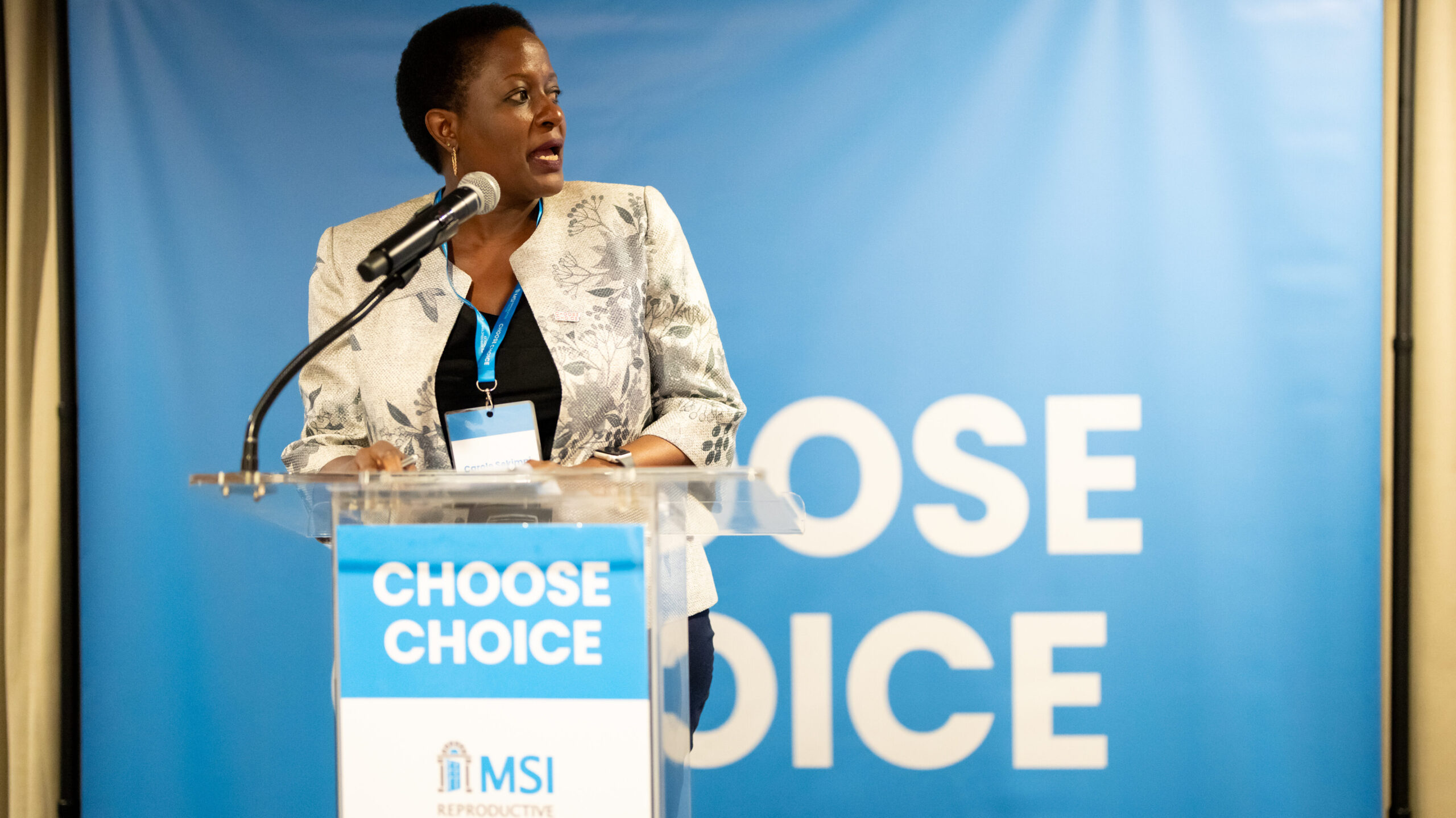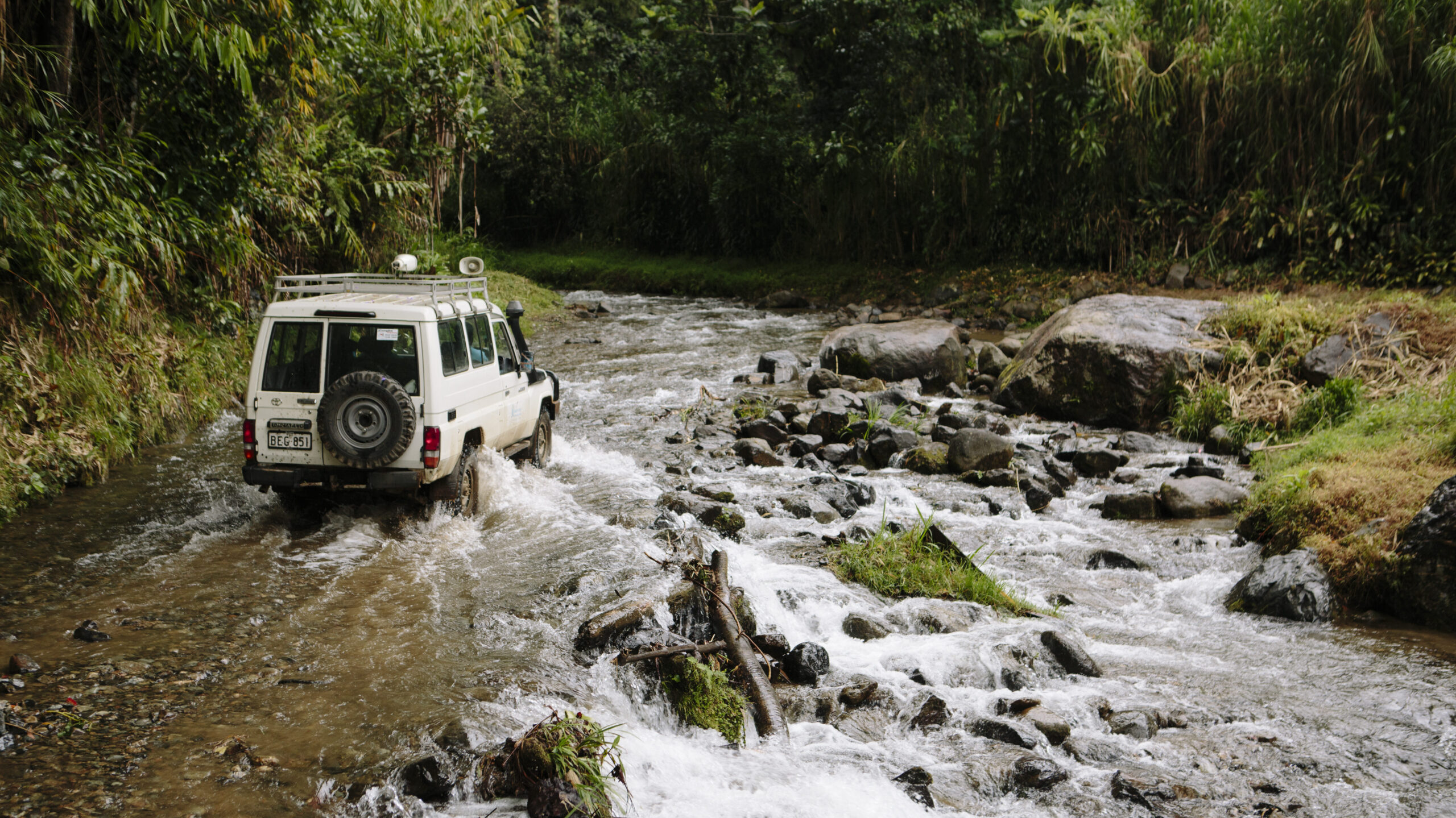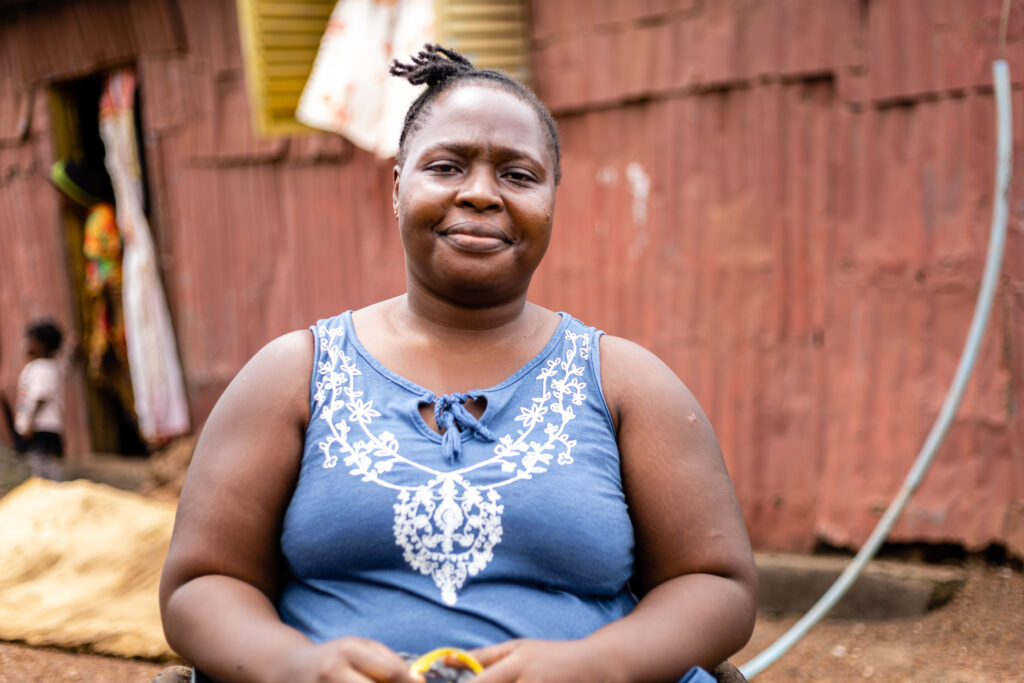
From allowing girls to stay in school, to supporting women to pursue work outside the home, and enabling families to space their children, access to contraception can be life changing. As Blessing, an adolescent who accessed contraception from MSI in Edo State, Nigeria shared:
“Every girl has her life to live and we are choosing to take our destiny in our hands… My ambition is to finish secondary school, gain admission to university and achieve my dream of becoming a lawyer. But I have to protect myself to see my dream come true.”
In our aim to deliver reproductive choice to all, MSI Reproductive Choices is proud to lead the WISH (Women’s Integrated Sexual Health) consortium – the flagship programme supported by the UK Foreign, Commonwealth and Development Office (FCDO). Through WISH, we are working in partnership with IPPF, Ipas, ThinkPlace Kenya, DKT, Leonard Cheshire Disability and Options across 12 countries in West and Central Africa to deliver sexual and reproductive healthcare services.
In this article, we share how we expanded access to 2.2 million clients, including in underserved and marginalised communities, in partnership.
Partnering to provide reproductive choice and save lives
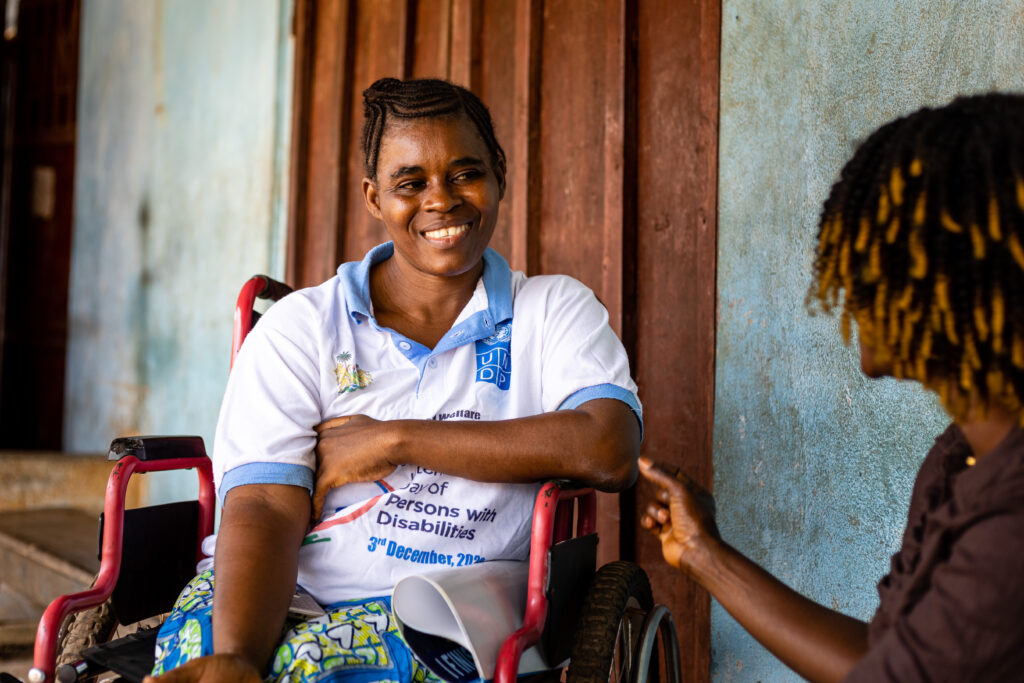
To expand access to reproductive choice, the WISH consortium has both delivered services and advocated to remove the policy barriers that restrict timely access to quality care. By partnering with specialists, such as pan-disability organisation Leonard Cheshire, our consortium has ensured that services are accessible to marginalised communities, including people with disabilities, people living in poverty, adolescents, and displaced communities.
Through a uniquely collaborative approach, the WISH programme has served over 2.2 million clients with sexual and reproductive healthcare services since launching in July 2018. These services have expanded choice, and saved lives, preventing an estimated 4.4 million unintended pregnancies, 1.9 million unsafe abortions and 22,000 maternal deaths.
By providing women and girls with reproductive choice, autonomy and the opportunity to pursue their own futures, the WISH programme has supported the FCDO in their aims to end preventable deaths, and support girls’ education and women’s participation in the workforce, supporting progress towards several key Sustainable Development Goals.
Designing programmes that leave no one behind
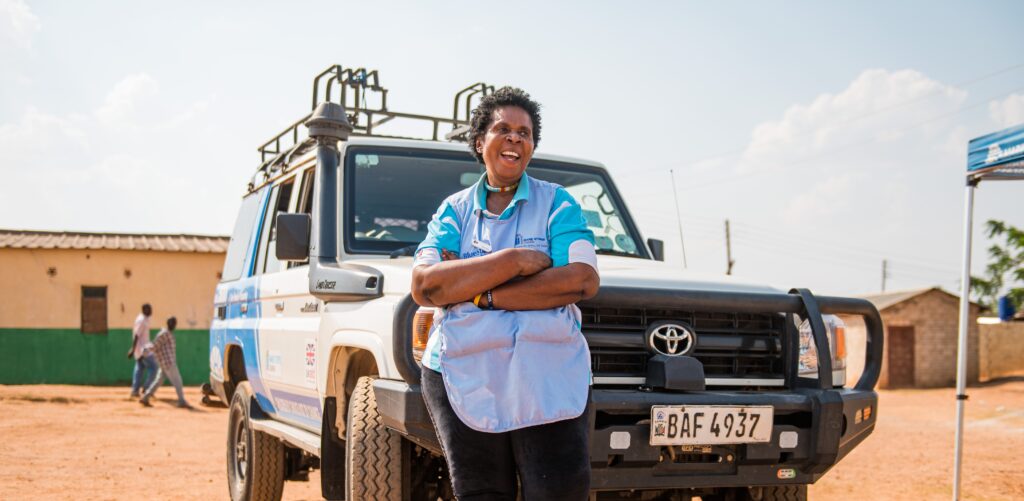
From service delivery channels that more effectively reach the underserved, such as mobile outreach teams and community-based providers, to using evidence and data to maximise our ability to leave no one behind, a commitment to equity and inclusiveness has been at the heart of WISH.
Supporting girls’ futures with contraceptive access
We know that barriers to reproductive healthcare continue to hold girls and young women back. We also know that these barriers cost lives. Research from Population Council across six Sub-Saharan African countries found that nearly all adolescent girls who have ever been pregnant are no longer in school, while childbirth complications continue to be the leading cause of death for girls aged 15-19.
To reach more adolescents, partners have worked to up-skill youth ambassadors to raise awareness, train providers to deliver inclusive services and run cross-partner campaigns to get the word out. In Sierra Leone, for example, a cross-partner social media campaign reached over 3,600 adolescents, primarily via their schools, letting them know about their contraceptive options and rights, and where to seek adolescent-friendly services. By tailoring awareness building campaigns and ensuring services are inclusive, of the 2.2 million clients served so far through WISH, 1 in 4 were under 20 years old (23%).
Meeting immediate needs in underserved communities
Reproductive choice can support women to stay in work and have autonomy over their family size and spacing, strengthening families, communities, and wider economies by helping to break cycles of poverty. However, in sub-Saharan Africa, access to reproductive healthcare varies hugely, as the poorest fifth of women are twice as likely to face an unmet need for contraception as the wealthiest fifth of women1.
To improve this, through WISH we developed tools and processes to ensure we can reach underserved communities, including people living in poverty in both urban and rural settings. For example, we developed maps using poverty and population data to create a visual representation of the regions with greatest unmet need, allowing outreach teams to plan routes to reach them. With this focus on meeting the immediate needs of underserved communities, approximately 37% of clients supported through WISH are currently living in extreme poverty, i.e. under $1.90 per day.
Contributing to change that is transformative and sustainable
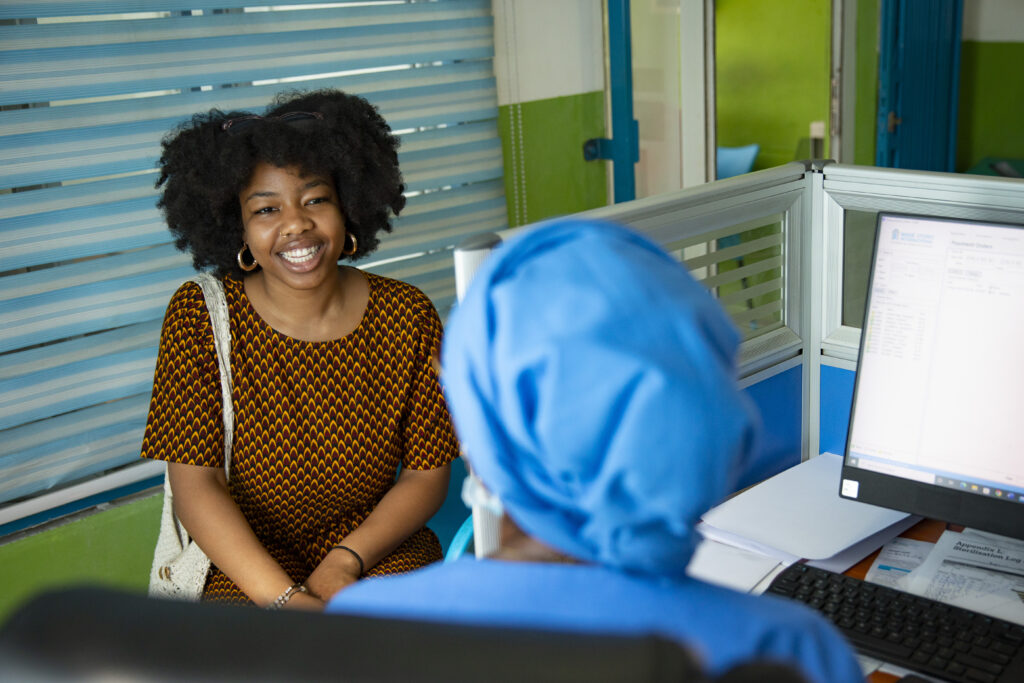
Crucially, we want to ensure that sexual and reproductive healthcare services are available in the longer-term as an everyday component of healthcare. By advocating for greater public sector investment, partnering with ministries of health to improve public sector provision, developing stronger accountability mechanisms, and helping to create a more supportive legislative environment, the WISH programme has worked to ensure services are sustainable and support a pathway to national ownership of quality provision.
We know that expanding access to safe reproductive healthcare is one of the most cost-effective investments that governments and donors can make, with the Guttmacher Institute finding that for each additional dollar spent on contraceptive services, the cost of pregnancy-related care drops by $2.20.
As part of our work to transition towards national ownership, WISH has worked with civil society partners to successfully advocate for increased allocations to reproductive healthcare in national and provincial health budgets. For example, in 2019, the provincial government of Kinshasa, DRC, created a new budget line for the purchase of contraceptives, with roughly 1.6M (GBP £1.2M) USD allocated per year for the period 2020 – 2023. The work of WISH and its partners has been critical in helping to ensure that this funding is protected and allocated in line with the greatest needs.
The past twelve months have presented many challenges for women and girls globally, with the pandemic widening inequalities and the access gap for sexual and reproductive healthcare further. However, thanks to the continued leadership of the FCDO, the WISH consortium has been able to make significant impact, together, including by adapting swiftly during COVID-19 to ensure services and rights are protected for women and girls when needed most.
We know our work is far from over. More than 230 million women and girls currently want but have no access to contraception. With our MSI 2030 strategy, our organisation has committed to delivering reproductive choice for all by 2030 and through WISH, we look forward to working in partnership to get there.
1. Source: Analysis of the most recent DHS datasets available for the Sub-Saharan country programmes that MSI works in, excluding South Africa.






